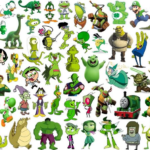Humor has continuously been a portion of human culture, frequently serving as a way to associate individuals, help the disposition, or indeed address awkward subjects. Be that as it may, not all jokes are made break even with, and a few shapes of humor—particularly those focusing on people based on their appearance, like “fat jokes”—can be more destructive than amusing. Whereas fat jokes have existed for as long as individuals have told jokes, they sit at a intersection between humor and hurt. This article will investigate fat jokes, their affect, the contrast between safe humor and hostile substance, and how society sees them nowadays.
The Anatomy of a Fat Joke
A fat joke regularly centers on an individual’s body estimate, regularly depicting them as apathetic, eager, or missing self-control. These jokes depend on generalizations, misrepresentations, and presumptions approximately individuals who are overweight or stout. They could seem harmless in certain circles, particularly when surrounded as lively chitchat, but the suggestions frequently run more profound.
For a few, telling a fat joke may be seen as light-hearted prodding among companions. In any case, for the individual being focused on or for those who recognize with the subject of the joke, it can be profoundly pernicious. This sort of humor may nourish into broader societal predispositions around body picture, wellbeing, and self-worth.
The Role of Humor in Society
Humor has continuously had a double nature. On one hand, it can bring individuals together, break down obstructions, and energize holding. On the other hand, it can be utilized as a weapon—whether deliberateness or not—to deride, outlaw, or disparage certain bunches of individuals. Verifiably, jokes focusing on particular characteristics such as race, sex, or weight were common and to a great extent acknowledged. As social orders gotten to be more mindful of the negative affect of such humor, there has been a move toward being more chivalrous in our utilize of dialect and jokes.
Fat jokes were once a staple of comedy schedules, regularly showing up in TV appears, motion pictures, and stand-up comedy acts. But as our understanding of mental wellbeing, body picture, and inclusivity develops, increasingly individuals address whether these sorts of jokes still have a place in our society.
The Impact of Fat Jokes on Individuals
For individuals who are overweight, hearing fat jokes—whether coordinated at them or not—can have a extend of negative impacts. These jokes frequently fortify existing uncertainties around body picture and may contribute to sentiments of disgrace, moo self-esteem, or indeed sadness. When fat jokes are made in open settings, they can moreover propagate social shame, causing people to feel marginalized or prohibited.
In extraordinary cases, rehashed introduction to fat jokes and body-shaming can lead to more genuine mental wellbeing concerns, counting eating clutters, uneasiness, and misery. Weight inclination, which is strengthened through such humor, has been connected to bullying, separation within the working environment, and indeed poorer therapeutic treatment.
For a few, fat jokes could seem harmless—a way to jab fun at a common societal issue. But for those who have lived encounters tied to being overweight or battling with body picture, the jokes can be profoundly individual and pernicious.
Fat Jokes in Media and Pop Culture
Fat jokes have long been a go-to for numerous comedians and journalists. From stand-up schedules to sitcoms, overweight characters are frequently portrayed as the butt of the joke. Consider appears like Companions, where “Fat Monica” is routinely utilized as comedic help, or motion pictures just Like the Nutty Teacher, where weight and physical appearance gotten to be central to the character’s humor.
These depictions strengthen the generalization that bigger bodies are inalienably amusing, crazy, or indeed dishonorable. Whereas a few may contend that these characters are utilized to highlight uncertainties we all share, the issue remains that overweight people are excessively singled out in these cases. The propagation of fat jokes in media can contribute to continuous stigmatization of individuals who do not fit society’s limit definition of “worthy” body sorts.
In later a long time, be that as it may, there has been a move in a few parts of the amusement industry toward advancing body inspiration and challenging conventional magnificence guidelines. Appears like High pitched and campaigns like Dove’s Genuine Excellence are illustrations of how media is advancing to celebrate distinctive body sorts instead of taunt them. In any case, the predominance of fat jokes in numerous shapes of media proposes that there’s still a long way to go.
The Argument for Intent
A few guards of fat jokes might contend that the aim behind the joke things. They may say that the joke is “fair for fun” or that no hurt is aiming. Be that as it may, it is basic to recognize that the affect of a joke regularly carries more weight than the expectation behind it. Indeed in the event that somebody doesn’t expected to harmed or annoy, the reality is that fat jokes can strengthen destructive generalizations and sustain negative sentiments toward individuals based on their appearance.
Besides, humor that depends on punching down—making fun of those in less favored or marginalized positions—is for the most part seen as less moral or worthy in advanced society. Fat jokes regularly drop into this category, where the humor is determined at the cost of an as of now stigmatized bunch.
Moving Toward More Inclusive Humor
In a society that values sympathy and consideration, it’s worth addressing whether certain sorts of jokes—like fat jokes—have a put in our advanced comedic scene. Humor can still be successful without focusing on people based on their appearance or other characteristics they may not have control over.
There are incalculable ways to be amusing without turning to fat jokes or body disgracing. Numerous comedians have built fruitful careers on humor that’s keen, observational, or ridiculous without being hostile. The development of elective comedy that doesn’t depend on unfeeling stereotypes shows that able to still giggle together without putting others down.
Conclusion: A Shift in Perspective
Fat jokes are a reflection of broader societal sees on body picture, wellbeing, and worth. Whereas they could appear like safe fun to a few, their impacts can be significant, strengthening negative generalizations and contributing to sentiments of avoidance and disgrace for others. As society advances toward more prominent compassion and inclusivity, it’s critical to consider how our humor reflects these values. Whereas giggling is significant to human association, jokes that target others based on their appearance may well be way better cleared out within the past. Instep, able to seek for ways to bring humor into the world that elevates instead of decreases others.












